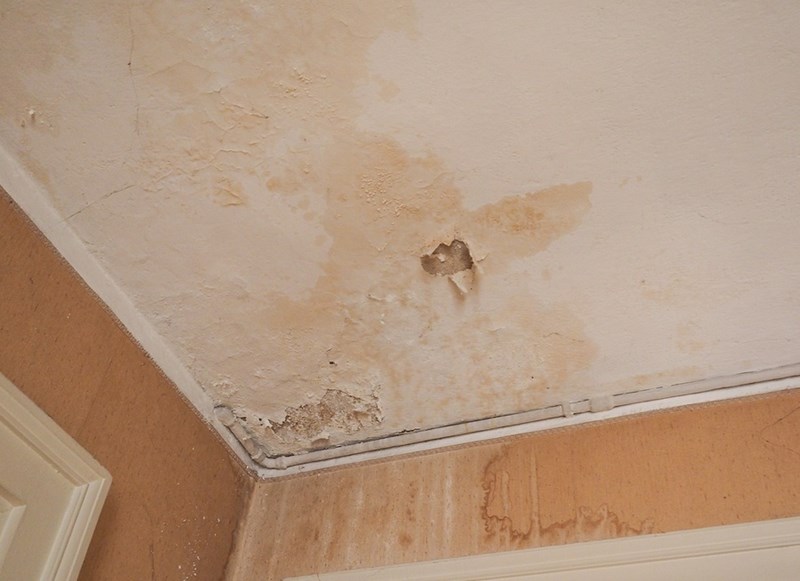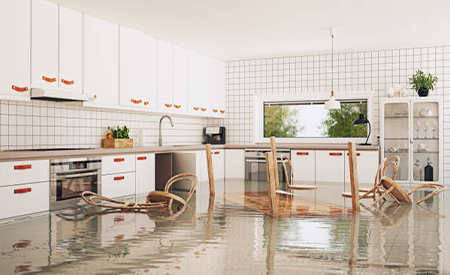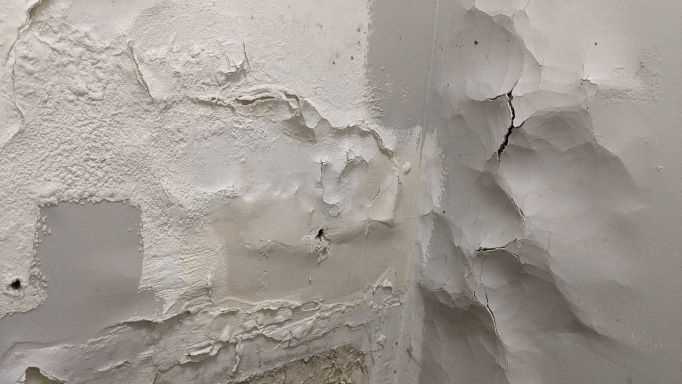24/7 Emergency Water Damage Restoration Services for Urgent Needs
24/7 Emergency Water Damage Restoration Services for Urgent Needs
Blog Article
The Process of Water Damages Cleaning: Guaranteeing Your Home Is Recovered Effectively
Water damage can be a daunting obstacle for property owners, requiring a meticulous and structured clean-up procedure to recover security and performance. A detailed assessment is essential to determine the extent of the damages and determine the suitable remediation steps. Following this, reliable water extraction strategies play a pivotal duty in mitigating further damage. Nonetheless, the subtleties of drying, sanitizing, and eventual repair are just as crucial and usually ignored. Understanding these phases can make a significant distinction in the outcome of your home's repair, motivating a closer consider what each step involves.
Analyzing the Damage
Upon finding water damage, the initial step is to extensively assess the level of the influence. This first assessment is important, as it helps figure out the essential steps for reliable cleanup and restoration. Begin by inspecting the influenced locations, including walls, ceilings, floorings, and individual belongings, to identify the resource of the water breach, whether from flooding, leaks, or condensation.
Documenting the damage is crucial for both insurance policy claims and preparing reconstruction efforts - damage restoration services. Usage photographs and created notes to capture the severity of the damage, keeping in mind any type of affected architectural aspects and materials. Pay unique focus to locations that may not be immediately visible, such as behind wall surfaces and under carpetings, as hidden wetness can result in further complications, consisting of mold growth
In addition, analyze the timeline of the water direct exposure. Inevitably, a comprehensive analysis lays the groundwork for an effective water damage clean-up process, making certain that all impacted areas are addressed efficiently and completely.
Water Removal Techniques

Experts commonly use submersible pumps for larger volumes of water, which can rapidly reduce flooding in basements or other influenced areas. For smaller quantities, wet/dry vacuum cleaners are commonly utilized to remove residual moisture from carpetings and difficult surface areas. In addition, making use of portable extractors permits targeted elimination in constrained rooms or areas with fragile materials.
In instances of polluted water, such as sewage or floodwater, advanced extraction methods might include making use of biohazard equipment to ensure security and conformity with wellness policies. High-powered extraction tools are essential in lessening water retention in structural materials, which can cause mold growth and structural degeneration if not attended to promptly.
Eventually, the performance of water removal methods plays an essential role in the total success of the water damages clean-up procedure, preparing for subsequent repair efforts.
Drying and Dehumidification
When standing water has actually been successfully drawn out, the next critical phase in the water damages cleanup process is drying out and dehumidification. This step is vital to protect against more damage and mold and mildew development, which can take place within 24 to 48 hours in wet settings.
To attain effective drying out, customized equipment such as industrial-grade air movers and dehumidifiers is employed. Air movers distribute air across damp surface areas, boosting evaporation rates, while dehumidifiers minimize humidity levels airborne, promoting a helpful environment for drying. The important site mix of these tools makes certain that dampness is extracted from wall surfaces, furnishings, and floorings, permitting them to completely dry thoroughly.
It is crucial to monitor the drying procedure very closely. Professionals frequently use dampness meters to evaluate the moisture content in numerous products, guaranteeing that all influenced locations get water damage dallas to appropriate dry skin levels. This careful technique aids to stop covert wetness pockets that might result in structural damages or harmful mold and mildew development.

Cleansing and Sanitizing
After the drying and dehumidification phase is complete, the next vital action in water damage clean-up is cleaning and sterilizing the affected locations. This procedure is vital to protect against the development of mold and mildew, germs, and various other virus that grow in damp environments.
The cleansing phase generally involves removing any kind of debris, dust, and pollutants from surfaces utilizing specialized cleaning up agents. For difficult surfaces, a combination of soap and water or industrial cleansing products is usually utilized. Soft products, such as upholstery and rugs, might require extra substantial cleansing methods, consisting of heavy steam cleansing or deep extraction methods, to ensure comprehensive sanitation.

Disinfecting follows cleansing, making use of EPA-approved anti-bacterials to get rid of unsafe microorganisms. This action is crucial, particularly in locations that might have entered into call with floodwaters or sewage, as these resources can pose major wellness dangers.
Furthermore, it is very important to attend to any continuing to be odors, which may require the usage of odor neutralizers or sophisticated site here methods like ozone therapy. Proper cleaning and sterilizing not just restore the safety and security and health of your home but also prepared for successful reconstruction and repair work in subsequent stages of the water damage cleanup process.
Repair and Fixings

As soon as the evaluation is complete, reconstruction initiatives can start. This usually includes fixing or changing broken products, making certain that all work complies with neighborhood building regulations and standards. As an example, if drywall has actually been jeopardized, it will certainly need to be removed and changed with brand-new material. Furthermore, flooring might call for similar focus, depending upon the level of water direct exposure.
It is important to involve knowledgeable restoration experts during this process, as they have the know-how to handle complicated repairs efficiently. They can help reduce possible future concerns, such as mold growth or architectural instability, therefore making certain a safe and habitable living atmosphere. Eventually, efficient restoration and repair work bring back the home's stability and boost its total value.
Conclusion
Finally, the procedure of water damages cleaning is crucial for bring back a home to its pre-damage problem. Each stage, from assessing the damage to implementing effective water removal techniques, followed by extensive drying out, sterilizing, and needed repairs, plays a crucial duty in making certain safety and security and conformity with structure standards. Efficient execution of these steps not only reduces immediate damages but likewise improves the lasting integrity and worth of the building.
Water damage can be a daunting obstacle for property owners, requiring a meticulous and organized clean-up process to recover safety and capability. Inevitably, an extensive assessment lays the groundwork for a successful water damage cleanup process, ensuring that all affected locations are attended to efficiently and extensively.
Effective water removal strategies are vital in mitigating damage and protecting against additional difficulties complying with a water invasion occasion.In conclusion, the process of water damages cleanup is vital for bring back a home to its pre-damage problem. Each phase, from examining the damages to implementing efficient water removal strategies, followed by complete drying out, sanitizing, and needed fixings, plays a vital role in making sure safety and security and conformity with building standards.
Report this page